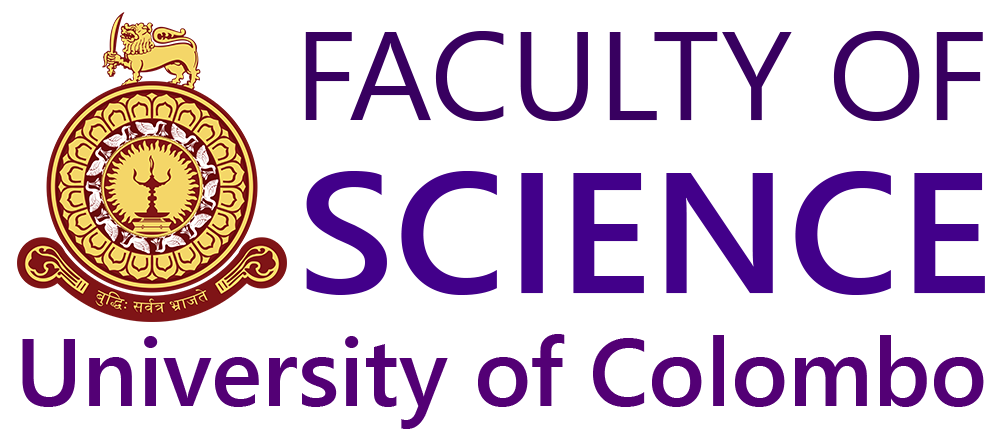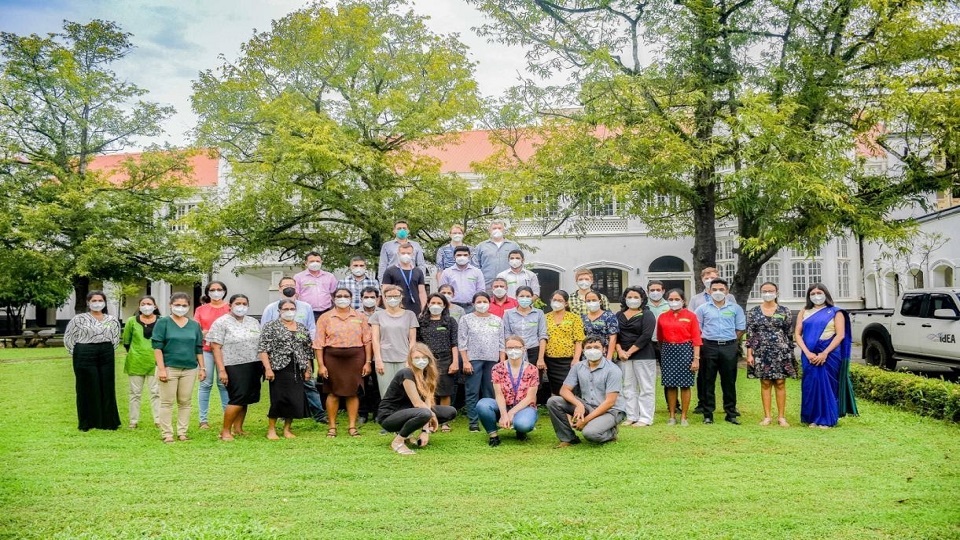IDEA project trains medical staff in Advanced Molecular Diagnostics of SARS CoV-2 and Variant Identification using Oxford Nanopore Sequencing Technique
The IDEA (Identification of Emerging Agents) project was established in collaboration with Robert Koch Institute (RKI) in Berlin, Germany, Department of Zoology and Environment Sciences, Faculty of Science, University of Colombo and North Colombo Teaching Hospital (NCTH), Ragama, in 2017. This project was initiated to strengthen the capacity of rapid and reliable identification and characterization of infectious diseases. Currently, the research arm of the IDEA project is funding for two main projects in Sri Lanka, aiming to identify novel viral infections in humans and wildlife. The post-graduate students were provided with advanced training in molecular diagnostics at RKI, Germany, and in the European mobile laboratories for field-based diagnostics for highly infectious diseases. Over the years, several workshops were conducted by the training arm of the IDEA project for medical officers and medical laboratory technologists (MLTs) in viral disease diagnostics using RT-PCR.
With the onset of the pandemic in early 2020, this project has become a valuable resource for the country, providing support for initiating diagnostic labs and training laboratory personnel for SARS-CoV-2 diagnostics. Furthermore, the project supported NCTH to start diagnosis to be one of the first labs to take on this challenge. IDEA laboratory under the IDEA project performs training and viral sequencing based on Oxford Nanopore Technologies for variant identification of SARS CoV-2 to support the government in combating the pandemic.
The training workshop on Advanced molecular diagnostics of SARS CoV-2 and variant identification using Oxford Nanopore sequencing technique for the medical laboratory sector of the Ministry of Health was organized at the University of Colombo, in collaboration with Robert Koch Institute in Berlin, Germany, and the Ministry of Health, Sri Lanka. Eight RKI scientists led by Prof. Andreas Nitsche arrived in Colombo on the 21st of November 2021. The workshop was held for three days at the Department of Zoology and Environment Sciences, Faculty of Science, University of Colombo, from Tuesday 23rd to Thursday 25th November 2021. On the last day of the training a certificate was awarded to all trainees after an assessment.
Marking the closure of the training program, an inauguration ceremony for handing over laboratory equipment to the Ministry of Health was held on Friday 26th November 2021 at the Medical Research Institute (MRI).
Objectives
The main objective of the workshop:
- To enhance the capacity building of the medical laboratory sector of the Ministry of Health, Sri Lanka of advanced molecular diagnostics of SARS CoV-2 and sequencing using Oxford Nanopore Technologies
The specific objectives of the workshop:
- To gain technology and skills in advanced molecular diagnostics and RT-PCR on strain identification
- To enhance technology for SARS CoV-2 genome sequencing using Oxford Nanopore Technologies and data analysis
Workshop sessions
The training workshop was conducted by the scientists from Robert Koch Institute, Germany, and by the trainers of the University of Colombo in two sessions:
- Workshop on Molecular Diagnostics and variant PCR Design
- Workshop on Oxford Nanopore Technology-based SARS CoV-2 sequencing
Participants for the workshop were virologists, medical officers, and MLTs from the Department of Molecular Biology at MRI, Department of Virology at MRI, Colombo North Teaching Hospital in Ragama, Department of Virology in National Hospital, Kandy and Genetic Sequencing Laboratory, Apeksha Hospital, Maharagama.
The workshop was conducted in the laboratories allocated to the Department of Zoology and Environment Sciences, Faculty of Science, the University of Colombo from Tuesday 23rd to Thursday 25th of November. As the preparatory session for the workshop, two webinars were conducted on 22nd Monday.
Workshop on Molecular Diagnostics and Variant PCR Design
Sixteen participants were trained for the variant quadruplex PCR primer kit designed by RKI, Thermo variant screening kit, and BAG typing kit. All the trainees were trained to identify the variant types of the SARS CoV-2 using different kits and PCR. Trainees got hands-on experience in pipetting, BIO-RAD machine, and Rotor-Gene Q instrument. Each session had conducted according to the safety laboratory guidelines. A test was held to evaluate all trainees in the workshop after the final session of the workshop. Finally, the trainees had obtained a certification issued by the RKI for their participation.


Workshop on Oxford Nanopore Technology-based SARS CoV-2 sequencing
Eight participants were trained for MinION sequencing based on Oxford Nanopore Technologies (ONT) using an in-house AmpliCoV Protocol for SARS CoV-2 amplification sequencing developed by the RKI. The workshop included cDNA synthesis, AmpliSeq PCR, purification, barcoding, library preparation, ONT-based MinION sequencing using flow cell with the Mk1C device, and data analysis. As a result, all the trainees were obtained hands-on experience in pipetting, loading flow cells, operating the Mk1C, and data analysis. Each session was conducted with prior knowledge of laboratory regulations and precautions. All the trainees obtained a certification issued by the RKI for participation in the workshop on the final day after an examination.



Certification
The training workshop was a great success where the laboratories at the National Hospital Kandy and the two Laboratories at the Medical Research Institute has already started SARS CoV-2 Sequencing and continuing to support the management of COVID-19 in Sri Lanka through molecular surveillance.


